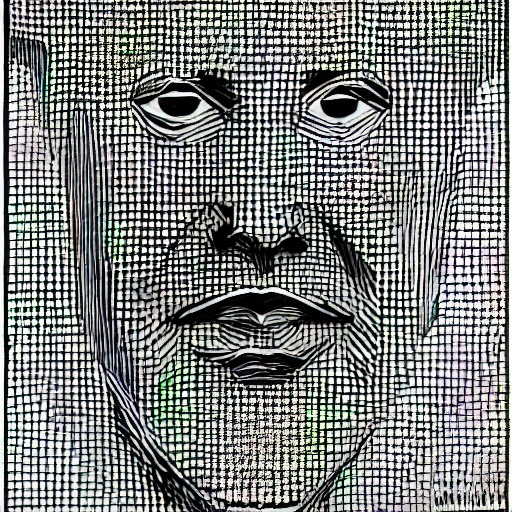I am fancy, so I say double ewe.
🐑🐑
“I love sheep” ~ Richie Cunningham
Double yew.
Reilly: Dary, do you know how many dudes are jerking off to your girlfriend right now? Yew! Jonesy: Wait, I actually know the answer. Yew. Sixteen point one thousand. Yew!
ew
Double you
Canadians here.
It’s “double-you”, but if spoken quickly, it can become “dub-you”
Non native speaker, and both of those hold true for me as well. Unless I’m referencing a hostname with www in it; then I just say dub-dub-dub
I still stick the yous in there, haha
I used to, until I realized Moxie Marlinspike doesn’t, so I stopped for easier pronounciation.
“Double U”.
Or if I’m saying it fast, as in “www.google.com”, it’s “dub-you”
Dubya
George Dubya
What is a “westerner”?
Apparently people who speak English
The French, Polish, Dutch, etc. are now reclassified as Asians
I love to poke at people’s conception of Western with these questions:
Is New Zealand Western?
Is Japan Western?
Is Brazil Western?
Is South Africa Western?
Is Kenya Western?
Is Lebanon Western?
Is Israel Western?
Is Hungary Western?
Is Finland Western?
Is Russia Western?
Is Armenia Western?If your nation was within NATO, it’s likely western If after the collapse of the USSR, your nation joined EU, it’s likely western And anything outside this category would be third world or eastern (Russia, China, Vietnam)
I realise you were just offering a hueristic, but Ironically all of the three countries you listed were Second World nations. (I’ve also never heard Eastern used in a similar way to Western in the way you used it at the end there before.)
Australia isn’t Western then, but Romania is?
Wait was Australia not in NATO? oh shit
That’s because east-west is not based on the region, it’s based on cultural aspects, along with a few other things like how people communicate. This is why Australia is western as it has a western culture. So, the whole cold war NATO thing is not 100% accurate, but defining first, second, and third world is since those are defined by political ideologies.
Well yes, First (Cold War era capitalists), Second (Communist, Marxist, and Maoist nations), and Third World (non-aligned and all the rest of them) are all clearly defined.
Western is more nebulous, which is why I like to push back at it. Each person’s idea of “Western” tends to be a little different.
If we’re taking the cultural root then Brazil, Israel and Lebanon make a nice test cases.
Edit: oh, you’re making the case that Western = First World Nations. That’s a fair and valid short cut, with Japan/South Korea/RoC, and various oost-Communist states in Europe.
Normal conversational speed: dubya
Enunciating: double you
Need to be unambiguous: whiskey
More like duba-you instead of dubya in normal conversation.
Tell me you are from the south without telling me you are from the south
When talking about the letter of the alphabet, I say “double u”
When that letter occurs in a word, it’s pronounced with pursed lips and full throated vowel sound like in “water”
Doubleyou
in english: double you in german: ve (german e, idk how to tell it to someone only knowing english)
German: sounds like “vay”
That’s something I’ve never understood about German or Russian. Both languages have letters that make the English w sound yet they have trouble with it? It’s not like the “th” sound which doesn’t exist in German so it makes no sense to me.
If you can pronounce the sound why can’t you pronounce it for w’s??
The German w sounds like the English v, while the German v sounds like the English (and German) f.
IPA of the German word “wir”: /viːɐ̯/
IPA of the English word “with”: /wɪθ/
I actually had to look it up, but in German the /w/ sound doesn’t really exist? In some dialects the “qu” string is pronounced as /kw/ [according to Wikipedia] but in most it’s pronounced as /kv/ - at least that’s how I’d pronounce it and I’m mostly talking in Standard High German.
“Dubble-you”
Not saying where I’m from.
Isn’t that a maple leaf though?
Double V (pronounced double vé, so it’s double you in English).
www is “double vé double vé double vé” in France, but often said “vévévé” in Switzerland. I believe that’s coming from the German speaking part of the country and adapted to French language.
Funny, opposite shortening in English - “double you double you double you” often becomes “dubdubdub”
Same in Denmark. I think it’s only English that’s weirdly pronouncing it as “double you”, even though the letter “W” is clearly two V’s 😁
When handwritten in English it’s typically the curvier U shape.
Double you.
In Swedish the letter w is called “dubbel v”, apart from when spelling URLs, then we just say something like “ve, ve, ve, punkt, de, änn, punkt, äss, e” if we wanted to say the URL “www.dn.se”.
The “äss” phonetic spelling will really help the english speakers reading it not pronounce it as “ass”. Love it.
Hehe, I didn’t even consider that (:
In sweden we have lots of äss.
I’d probably have transcribed the letter pronunciation as ‘ve, ve, ve, punkt, de, en, punkt, ess e’.
Just goes to show you that ‘en’ doesn’t even follow the normal pronunciation rules of Swedish, unless we’re talking about the tree, in which case it does.
I thought about that but “en” is pronounced differently from “änn”, and we have the word “äss” from a deck of cards.
I had to double-check, because I’ve only ever used the spelling “Ess”. Turns out both variants are correct.
I also refuse this bizarre English / German / Polish idea that W is a separate letter and not just a fun way to write V.
I’m a silly lil guy so I pronounce it “Wubble Wu” for fun.














